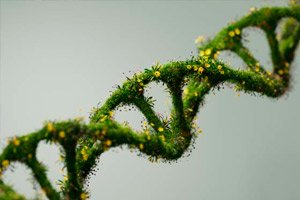
All iLive content is medically reviewed or fact checked to ensure as much factual accuracy as possible.
We have strict sourcing guidelines and only link to reputable media sites, academic research institutions and, whenever possible, medically peer reviewed studies. Note that the numbers in parentheses ([1], [2], etc.) are clickable links to these studies.
If you feel that any of our content is inaccurate, out-of-date, or otherwise questionable, please select it and press Ctrl + Enter.
Large-scale genetic study reveals 14 genes linked to neuroticism
Last reviewed: 02.07.2025

Neuroticism is a core personality trait described by established psychological theories that is associated with emotional instability and a tendency toward negative emotions. Previous research has shown that this personality trait often accompanies a variety of mental health disorders, as well as some chronic and severe medical conditions.
Technological advances have opened up new possibilities for studying the genetic factors that contribute to the development of diseases and psychiatric disorders. Similar techniques can also help shed light on the genes that make a person more likely to exhibit certain personality traits, including neuroticism.
Previous studies have identified more than 100 regions of the human genome associated with neuroticism. However, much about the heritability of this personality trait remains unclear.
Researchers from Fudan University in China recently took a deeper look at the genetic underpinnings of neuroticism by analysing data from the UK Biobank, a large database containing genetic and health information collected from thousands of people in the UK. Their paper, published in Nature Human Behaviour, identified 14 genes linked to neuroticism, 12 of which were discovered for the first time.
"Existing genetic studies of neuroticism have been largely limited to common variants," wrote Xing-Jui Wu, Ze-Yu Li and colleagues in their paper. "We conducted a large-scale exome analysis of white British subjects from the UK Biobank, identifying the role of coding variants in neuroticism. For rare variants, the analysis identified 14 genes associated with neuroticism.
"Among them, 12 (PTPRE, BCL10, TRIM32, ANKRD12, ADGRB2, MON2, HIF1A, ITGB2, STK39, CAPNS2, OGFOD1, and KDM4B) were novel, and the remaining two (MADD and TRPC4AP) were supported by previous studies of common variants."
The UK Biobank offers a large amount of data that researchers around the world can analyze to study the interactions between different genes, lifestyles, and health conditions. For their study, Wu, Li, and colleagues analyzed data from 454,787 exomes in the UK Biobank to identify genes associated with neuroticism. Their analysis identified 12 new genes associated with this personality trait, and confirmed the association of two genes already found in previous studies with neuroticism.
"The heritability of rare coding variants was estimated to be up to 7.3% for neuroticism," the study authors wrote.
"For common variants, we identified 78 significant associations involving six previously undescribed genes. We further validated these variants with meta-analysis of data from four other populations from the UK Biobank and the 23andMe sample. In addition, these variants had broad effects on neuropsychiatric disorders, cognitive ability, and brain structure."
The recent findings by Wu, Li, and their colleagues contribute to our understanding of neuroticism and its genetic underpinnings. In the future, these findings may inspire new genetic studies focusing on neuroticism or other personality traits. Ultimately, such efforts may contribute to the development of diagnostic and therapeutic tools for the treatment of neuropsychiatric disorders associated with certain personality traits.
"Our results deepen our understanding of the genetic structure of neuroticism and provide potential targets for future mechanistic studies," the authors concluded.
